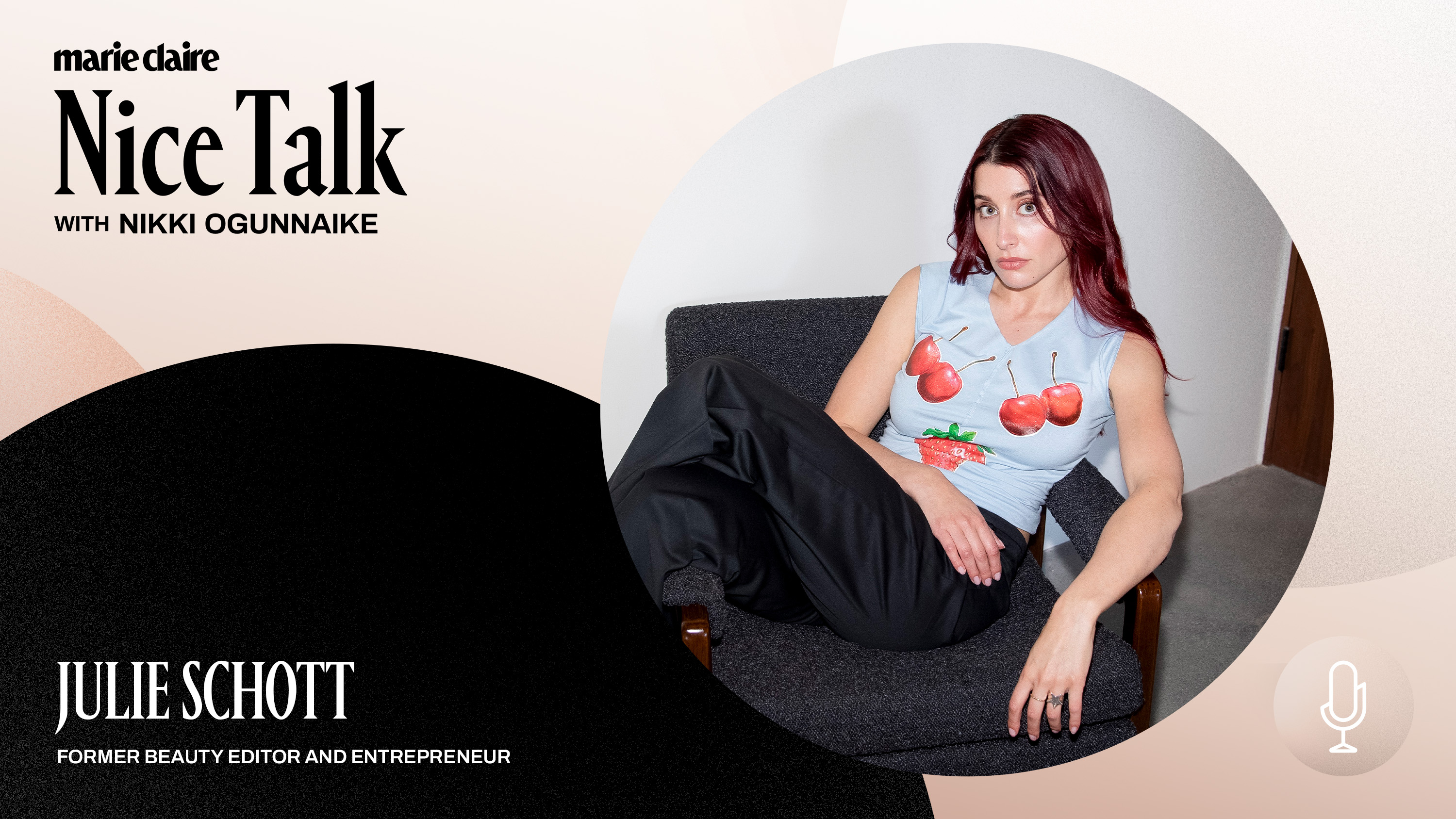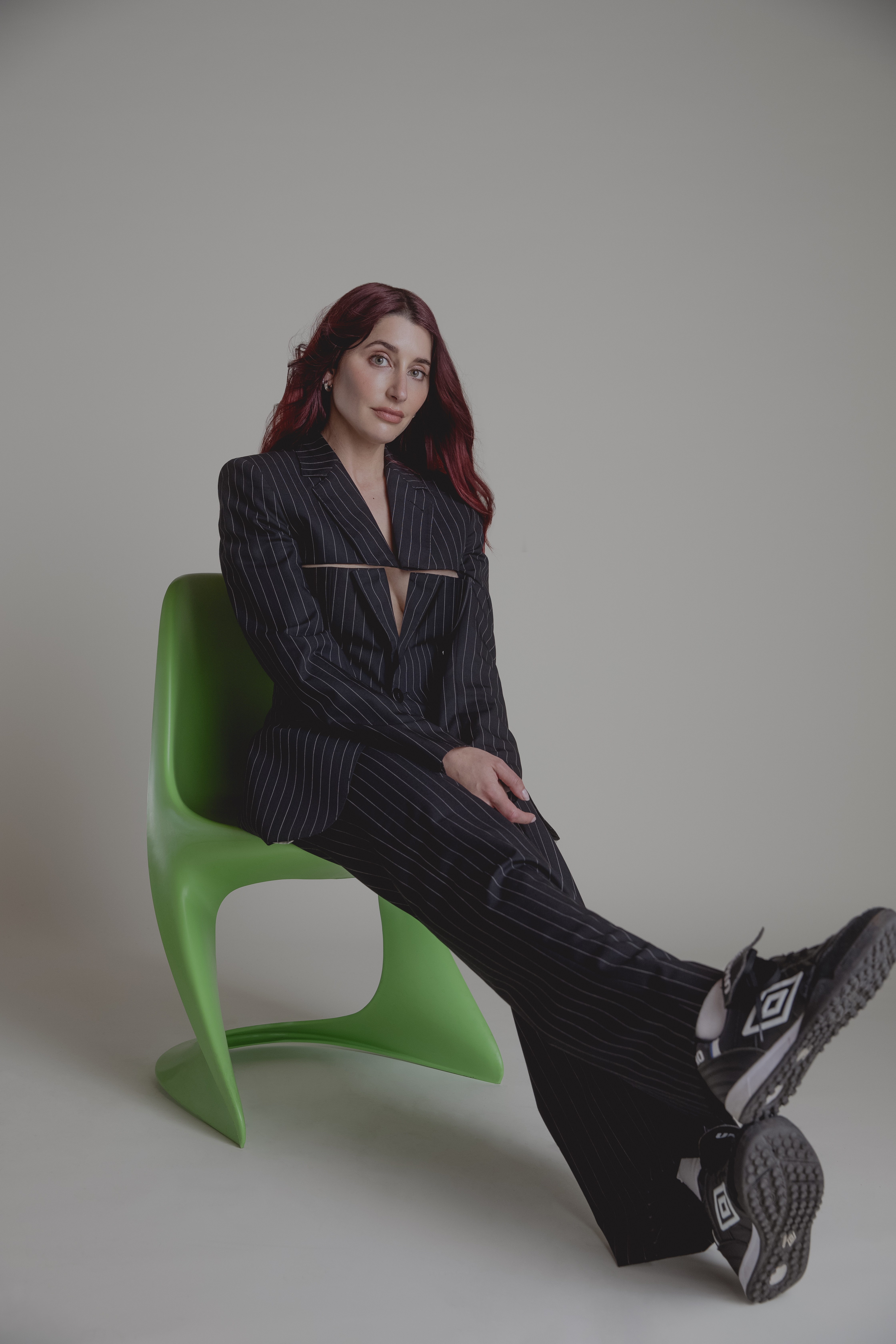Starface Founder Julie Schott Shares Her Advice for Aspiring Entrepreneurs
The entrepreneur spoke to editor-in-chief Nikki Ogunnaike for the 'Marie Claire' podcast "Nice Talk."


Welcome to Nice Talk, hosted by Marie Claire Editor in Chief Nikki Ogunnaike. Each week, Nikki sits down with fascinating women—entertainers, entrepreneurs, creators, athletes, and changemakers—to discuss money, power, and style. “Well-behaved” women have long been discouraged from speaking on these topics—style should be effortless, and conversations about money or power aren’t “proper,” “ladylike,” or “nice.” But Nikki's definition of a Nice Talk is one where all parties walk away feeling empowered. You can listen to Nice Talk with Nikki Ogunnaike on Apple Podcasts and Spotify.
The acne spot treatment brand Starface may be a favorite skin care product among Gen Z, but when founder Julie Schott set out to launch the company, she didn't know where to start with its finances. She simply trusted her instincts—and advises other aspiring entrepreneurs to do the same.
Schott, who became an entrepreneur after working as a beauty editor for years, opened up on the Marie Claire podcast "Nice Talk" about how she learned to accept that it's "okay" to have blind spots and seek assistance when starting a business.
"I knew that I did not know how to finance a company, and I knew that it wasn't going to be me and how my brain works," Schott recalls.
"So it was about finding that better half—that partner who I could really trust and really believe I don't need to check their homework," continues Schott, who's since expanded into founding Julie, an emergency contraceptive brand, the skincare line Futurewise, and Blip nicotine gum and sticks.
The entrepreneur says she "did find that partner" in her co-founder Brian Bordainick. "We've been working together on everything because I trust him and I don't need to check and he trusts me the same way," she adds.

Ultimately, Schott explains that understanding her strengths and knowing where to take a step back as a CEO can only help a business. "Yes, I'm aware, and, yes, I'm in the rooms, but, no, I'm not making a financial model. And it's okay to say that, right? Like, you don't have to be everything," she says. "I actually think it's important to recognize that because I'm never going to be the best at doing that thing. It wouldn't have been beneficial to the business if I had insisted upon it."
Get exclusive access to fashion and beauty trends, hot-off-the-press celebrity news, and more.
Schott also reflects on "Nice Talk" about how she didn't anticipate how beloved Starface would become by Gen Z. What she did know, she explains, is recognizing the importance of "trusting your gut" when it comes to pursuing something you're passionate about.
"I don't think [the reception] was something that we thought, 'Oh, this is going to happen,' because you can't really. You don't really know. The customer tells you how the thing affects them, or they show you through how they talk about it online, or how they talk about it offline," she shares. "But it's really meaningful."
After years of struggling with and openly talking about adult acne herself, Schott says the best part of working on Starface has been being able to help others and see how useful the product has been for them. "There are so many other challenges that young people are already going to face," Schott says, noting how frustrating it can feel to not want to go to work or school because of a breakout. "So if you can just make some of these [challenges] that are actually easy to solve better, I think that's probably one of the best parts [of running Starface].
Schott opens up more about her experience leaving fashion media to start her own business, stepping into a CEO role, and what it was like venturing into the emergency contraceptive space on this week's "Nice Talk." The episode is available now everywhere you listen to podcasts.

Sadie Bell is the Senior Culture Editor at Marie Claire, where she edits, writes, and helps to ideate stories across movies, TV, books, music, and theater, from interviews with talent to pop culture features and trend stories. She has a passion for uplifting rising stars, and a special interest in cult-classic movies, emerging arts scenes, and music. She has over nine years of experience covering pop culture and her byline has appeared in Billboard, Interview Magazine, NYLON, PEOPLE, Rolling Stone, Thrillist and other outlets.